Last updated: 2 April 2020
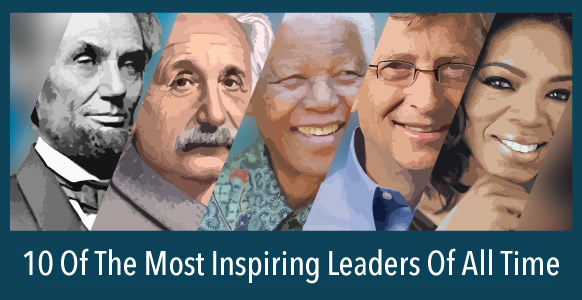
>> Want to discover insider secrets from some of the most dynamic and inspiring leaders and entrepreneurs? Join our Leader’s Edge 14-day free trial to receive practical training based on the latest trends and research so you can break free from any bad habits or beliefs that are currently keeping you “stuck.”
It was never going to be an easy feat, was it? To create a list of the most inspiring leaders who have redefined leadership, oh, and then dwindle this list down to a mere 10.
Seriously, where do you even start?
One of the reasons this became somewhat an impossible task is because inspiration comes in many forms and has many faces.
Some leaders became great because of how they persevered with a dream in spite of their circumstances, only to go on and achieve such extraordinary things that they continue to be revered long after their deaths.
While others stuck by their values and protested for the rights of others, even when it jeopardized their own freedom… not mention their lives.
Whereas some leaders are truly inspirational and well-respected because of their natural flair to innovate, empower and influence others to act in meaningful ways and ultimately change the world.
So the list below isn’t exhaustive by any means. But it certainly contains some of the most influential leaders who have shaped the world for the better and inspired positive changes among millions, if not billions. Not a bad litmus test when you’re measuring the true merit of a leader, we think.
10 Of The Most Inspiring Leaders Of All Time Who Have Redefined Leadership
Let’s dive on in then, shall we?
1. Mahatma Gandhi – The Anti-War Activist With A Global Legacy
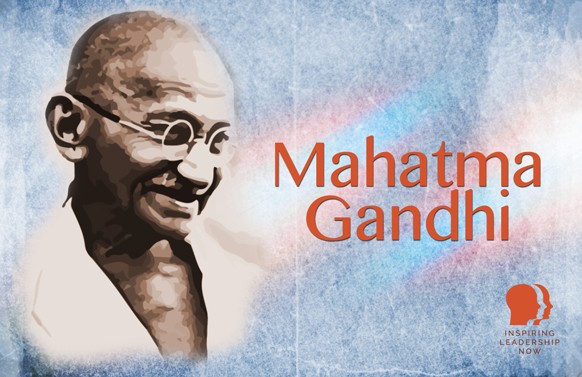
Mahatma Gandhi left his mark on the world in more ways than one.
The leader of India’s independence movement achieved remarkable feats through a form of non-violent civil disobedience that would inspire millions around the world, including many of the people on this list.
World leaders, scientists, philosophers and even entrepreneurs have drawn inspiration from Gandhi, whose spiritual significance was just as profound as his role in liberating India.
Gandhi was born in India in 1869, a country that was then part of the British Empire. His youth was perhaps uncharacteristic of the Gandhi the history books remember.
After an arranged marriage at the age of 13, Gandhi rebelled against his deeply religious upbringing by smoking, eating meat and even stealing. By age 18, he set sail to London to study law.
A fledgling law career in India would eventually send the 24-year-old Gandhi to South Africa. It was here that he witnessed the deep-seated discrimination and racial segregation of South African society.
Perhaps the biggest turning point in young Gandhi’s life occurred on June 7, 1893, where he was thrown off a train station by a white man after he refused to move to the back of the car. That would prove to be Gandhi’s first, but certainly not last, act of civil disobedience.
By 1906, Gandhi had organized his first mass civil disobedience campaign in South Africa. He would spend the next 9 years fighting for Indian rights in the country before returning home to fight for Indian liberation.
Over the years Gandhi would become a leading figure in the liberation movement. After years of struggle and multiple arrests, Gandhi’s “Quit India” movement in 1942 paved the way for Britain’s eventual withdrawal from the country.
Although a pacifist, Gandhi was murdered by a Hindu extremist who resented the leader’s tolerance of Muslims following the declaration of Indian independence.
A man who had spent his life preaching nonviolence was killed by a semiautomatic pistol at point-blank range.
Gandhi is today remembered for his commitment to pacifism, peaceful protest and simple living. He single-handedly inspired millions of people to action, preaching a message of love, tolerance and avoiding greed.
For those reasons he inspired civil rights movements from Apartheid South Africa to the United States and is today remembered as one of the greatest leaders of the 20th century.
2. Winston Churchill – Resolute Leadership During One Of The Most Painful Episodes In Human History
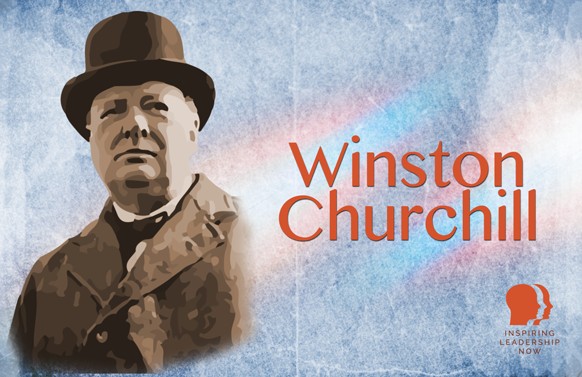
Winston Churchill is long remembered as one of the greatest leaders in modern history and the savior of democracy.
He was tasked with the daunting task of leading Britain and the Allied powers to victory against the Nazis during the Second World War. His wisdom, upright character and persistence led Britain from the brink of defeat to victory in the most brutal war of the 20th century.
Winston Churchill was born to an aristocratic family in 1874 and served in the British military. He would go on to become a prolific writer before entering into politics. Churchill became British Prime Minister in 1940 during the height of the Second World War.
His long political career is also remembered for its persistence. It took Churchill a staggering 40 years to finally become Prime Minister. But when he finally took the helm, he became arguably the greatest leader of the 20th century.
He was not only instrumental in working with the United States and Russia to defeat the Axis powers, he helped establish the post-war peace that would lead the western world through one of its greatest periods of prosperity.
Churchill’s leadership style would prove so powerful that he would be elected Prime Minister again in 1951.
Among Churchill’s greatest strengths was his power of oratory, which helped him connect with an entire nation. His life was filled with memorable quotes that leaders to this day use for inspiration.
Phrases like, “We will never surrender,” “The Iron Curtain” and “This was their finest hour” have withstood the test of time. Among his many honors include a Nobel Prize for Literature and being the first person to become an honorary US citizen.
Churchill’s inspirational leadership style is especially notable when you consider his bitter struggle with depression – the so-called “black dog” of his existence.
In fact, historians attribute many of Churchill’s successes to his ability to use his manic depression and bipolar personality to his advantage. These are just some of the reasons that make Winston Churchill truly special.
The following Churchill quote still serves as a powerful motivational nudge to stick with your convictions even when the going gets tough:
“Never give in. Never give in. Never, never, never, never – in nothing, great or small, large or petty – never give in, except to convictions of honor and good sense. Never yield to force. Never yield to the apparently overwhelming might of the enemy.”
Now you know why they called Winston Churchill “The Bulldog.”
>>Want to learn the skills of an exceptional leader so you can inspire those you lead… both in good times and bad? Don’t miss the below 14-day FREE leadership training program:
3. Martin Luther King Jr. – Celebrated Civil Rights Activist That Forever Changed America
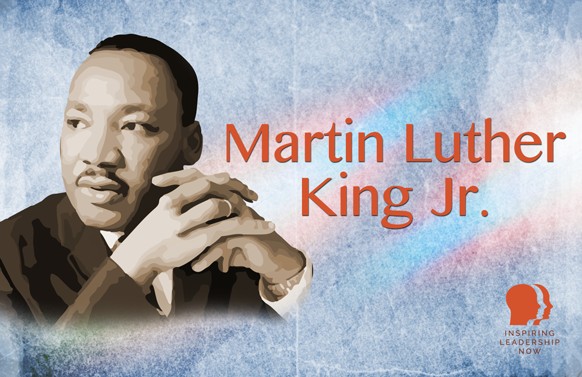
“I have a dream that my four children will one day live in a nation where they will not be judged by the color of their skin but by the content of their character.” – Martin Luther King Jr
Very few Americans are as celebrated as Martin Luther King Jr., the Baptist minister and social activist who led the Civil Rights Movement in the United States until his tragic death in 1968.
As an African-American born in the rural south in 1929, MLK faced an uphill battle all his life. Growing up in Atlanta, Georgia, the young Martin was considered a precocious student who paid little attention to his studies and found great discomfort in religion.
That all began to change in his junior year, when he took a Bible class and renewed his faith. By 1948, he had earned a degree from Morehouse College before moving on to the Crozer Theological Seminary in Pennsylvania. It was at Morehouse College that MLK opened his eyes to racial inequality.
Following years of successful civil rights activism, MLK and 61 other activists founded the Southern Christian Leadership Conference in 1957.
Two years later, MLK visited Mahatma Gandhi’s birthplace in India, which emboldened him to continue down the path of peaceful activism.
On August 28, 1963, MLK would leave his mark on American history by delivery the famous “I Have a Dream” speech during the March on Washington for Jobs and Freedom.
King had such a profound impact on American race relations that his efforts resulted in the passage of the Civil Rights Act of 1964, which authorized the federal government to desegregate public accommodations. The same year, MLK received the Nobel Peace Prize.
MLK would continue his activism until his assassination on April 4, 1968. His killer, James Earl Ray, was eventually apprehended after a two-month manhunt.
King’s assassination was a tragic end to a remarkable life that had a seismic impact on an entire nation.
He proved, just like Gandhi, that non-violent protests can influence tremendous change. MLK gave his life to the civil rights movement.
Nearly 50 years after his death, his legacy is stronger than ever. The third Monday of every January is Martin Luther King Jr. Day, an observed federal holiday in the United States.
4. Nelson Mandela – A Man Whose Cause For Freedom Proved Triumphant
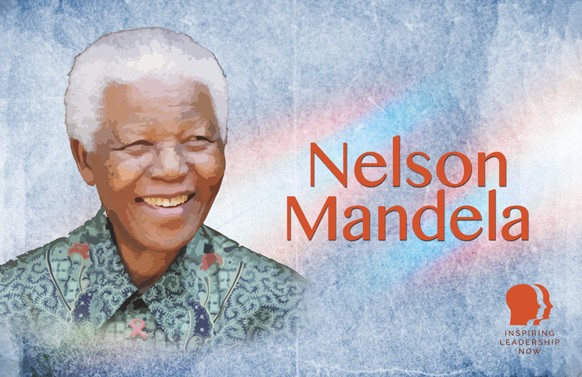
Very few individuals personify dedication and patience like Nelson Mandela, South Africa’s first democratically elected President. Getting there was a story so epic that it was made into a Hollywood biopic in 2013.
Much like Martin Luther King, Jr., Mandela was one of the great transformative civil rights leaders of the 20TH century.
He not only directed peaceful demonstrations against the deeply racist South African government, he went on to claim the Nobel Prize in 1993 for helping to end apartheid.
Mandela was neither a politician nor an opportunist, but a man deeply committed to improving the lives of his people and applying the same message of freedom and equality to all nations.
“I hate race discrimination most intensely and in all its manifestations. I have fought it all during my life; I fight it now, and will do so until the end of my days.”
Born in 1918, Mandela became involved in the civil rights movement as a young man, and spent 20 years leading a peaceful defiance against the apartheid government. His commitment to ending apartheid landed him and 150 others in prison in 1956 on charges of treason.
Although they were acquitted, Mandela began to recognize that an armed struggle was necessary to achieve real change. His involvement with the MK movement, an armed wing of
the African National Congress (ANC), landed him back in prison in 1961 after organizing a 3-day national workers’ strike.
Mandela was eventually sentenced to life in prison in 1963 for political offenses. He would spend the next 27 years in jail, where he endured cruel punishment and contracted tuberculosis.
During that time, Mandela was offered early release if he renounced armed struggle – a condition he flat-out refused to consider.
It wasn’t until February 11, 1990 that the now 72-year old prisoner was released under South Africa’s new President, Frederik Williem de Klerk, who helped broker the deal to end apartheid.
One year later, Mandela was elected leader of the African National Congress after it was also unbanned by de Klerk. Mandela would become the South Africa’s first black president in 1994 after the country’s first democratic elections.
The title of Mandela’s autobiography, Long Walk to Freedom, aptly describes his lifelong journey to ending apartheid. It’s hard to think of many leaders in history who gave more to his cause than Nelson Mandela. For that reason, he is one of the most celebrated people in modern history.
Mandela died on December 5, 2013, at the age of 95.
5. Albert Einstein – Rewriting The Laws Of Nature For The Betterment Of Humanity
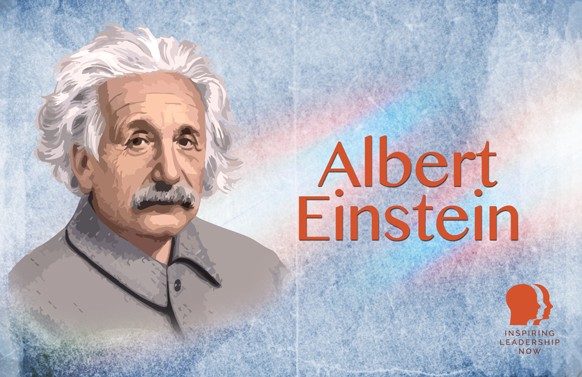
Albert Einstein is perhaps the most famous scientist of the 20th century. The prized physicist had a profound impact on our understanding of the universe, including basic concepts such as time, light and gravity.
To this day, his work is being used to guide physicists to new frontiers, helping us to understand our significance on the grandest scale.
Born in Germany in 1879, Einstein was slightly different than all the boys. His head was a little bigger and he hardly spoke a word, which led at least one housekeeper to label him “retarded.” Little did she know, this “retarded” boy would eventually go on to reshape the world through his ideas.
By age 26, Einstein had obtained his PhD. The same year he published 4 important papers on topics ranging from the nature of light to mass-energy equivalence.
While largely ignored at first, these papers would eventually make a tremendous contribution to the scientific community, including the famous E= MC2 equation for mass energy equivalence.
These papers also contained the seeds of Einstein’s Theory of Relativity, one of the most revolutionary ideas in history.
Although it’s impossible to pinpoint exactly the nature of Einstein’s brilliance, he had all of the characteristics of a genius.
He had a vivid imagination, questioned everything and found new ways of thinking about old problems. He also had an unrelenting work ethic that pushed him to action even on the day of his death, where he was reportedly working on a speech for a television program.
The final picture of Einstein’s office taken hours before his passing showed a man who was deeply consumed in his work right up until the very end.
In addition to his timeless quotes and deep sense of humour, Einstein is remembered for overcoming adversity. From physical setbacks as a young boy to spending two frustrating years looking for work as a teaching assistant after graduating, Einstein’s life was filled with challenges.
His ability to keep a positive attitude and provoke creative thought experiments were at the centre of his genius. More than 60 years after his death, the world remembers not a man who spent years working at a patent office, but a man who changed the world.
6. Abraham Lincoln – The Embodiment Of Liberty And Great Emancipator Of Slaves
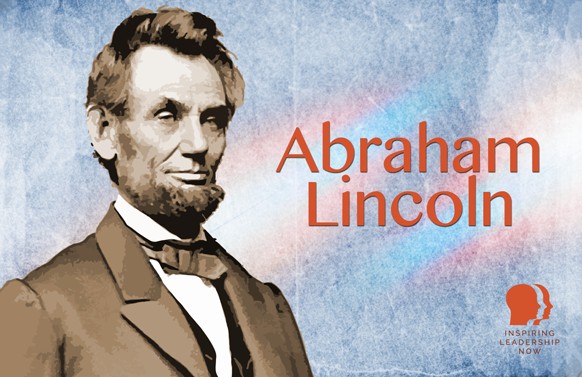
Abraham Lincoln was more than just an American hero; he represented the dawn of a new era in human civilization based on freedom, self-government and equality.
Lincoln was born in a log cabin in Kentucky in 1809. He knew his mother all of 9 years before she died of milk sickness at the age of 34.
Her death devastated young Abraham and further alienated him from his father. One year after his mother’s death, Abraham’s father married a woman who had a significant impact on Abraham’s life by encouraging him to read.
As one might expect, there was little time or need for a formal education in the Indiana wilderness. Abraham’s formal education began much later in his life and amounted to a mere 18 months.
That said, Abraham was incredibly talented. Largely self-taught, he eventually became a lawyer before getting elected to the Illinois House of Representatives in 1846. It was here that his brilliance influenced what would become the freest and most prosperous nation on earth.
Lincoln rapidly modernized the economy without sacrificing his values. By 1860, he secured the Republican Party presidential nomination and was elected president. Lincoln’s victory prompted southern slave states to form the Confederate States of America.
Abraham became leader of the Union during the American Civil War, where he used his power of oratory to deliver the Gettysburg Address and other powerful speeches to win over support of the American people.
To this day, Lincoln is synonymous with the principles of liberty, democracy, equal rights and unification.
His willingness to stand alone on issues he believed in made him one of the most beloved and memorable leaders in modern history.
His refusal to compromise on the issue of slavery and instrumental role in leading the north to victory during the Civil War made him the target of Confederate plotters and sympathizers.
Lincoln was assassinated by John Wilkes Booth, a Confederate supporter, on April 14, 1865 – less than one month before the end of the Civil War.
>> Pssst! Want to learn unconventional leadership tactics from some of most respected modern-day experts and entrepreneurs, such as leadership “guru” Michael Hyatt, and bestselling author and no BS straight-shooter Gary John Bishop? Then you won’t want to miss our 14-day FREE trial of The Leader’s Edge Membership:
7. St. Teresa of Calcutta (Mother Teresa) – Nobel Lauriat Determined To Ease Suffering In The World
Mother Teresa’s unforgettable devotion to help the world’s poorest, most impoverished and vulnerable people left a lasting dent in the world.
Her remarkable leadership was even powerful enough to cut across conflicts and enemy lines — a strength clearly exemplified during the 1982 Siege of Beirut.
Mother Teresa managed to broker a temporary cease-fire between the Israeli army and Palestinian guerrillas to rescue 37 children trapped in a front-line hospital. Teresa then travelled through the war zone alongside Red Cross workers to evacuate the young patients.
What inspired Mother Teresa’s tireless drive to help others? Born in 1910 as Anjezë Gonxhe Bojaxhiu, she grew up in present day Macedonia. Perhaps influenced by her father’s death when she was only 8 years old, Mother Teresa already decided to commit herself to a religious life by the time she was 12.
Her real journey began in 1929 when she arrived in India where she became a nun and taught at a convent in Eastern Calcutta for several decades.
The 1943 Bengal famine which killed a staggering 2.1 million people was a life changing moment for Teresa and left an unshakable impression on her. After 20 years of teaching at the convent, she felt a “calling within a calling” and left her position as headmistress to aid the poor.
Teresa then moved into the slums where she faced hunger, poverty and homelessness.
Despite the lack of equipment and supplies, she found a way to open a school for poor children teaching them to read and write using sticks in the dirt.
Her efforts didn’t go unnoticed. A new community soon formed around Mother Teresa opening hospices, clinics and orphanages throughout India. Within a few years the mission went global.
By the 1970s, the congregation was helping orphans and those afflicted by addiction, poverty, disability, old age and disaster around the world. In 1979, Teresa received the Nobel Peace Prize for her work to overcome poverty and suffering.
Mother Teresa’s passed away in 1997 but congregation continues to live on to this day spreading Mother Teresa’s vision and serving those in need.
In 2016, the Catholic Church recognized Mother Teresa as a saint and canonized her as St. Teresa of Calcutta for her heroic virtue.
8. Stephen Hawking – The Physicist Who Proved That Determination And Positive Thinking Can Triumph Over Even The Most Severe Limitations
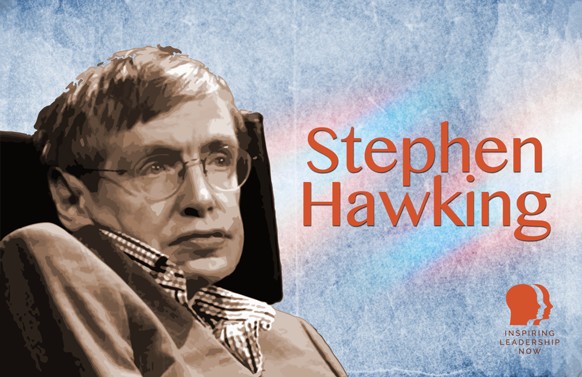
Stephen Hawking probably had every reason to give up on life.
Diagnosed with amyotrophic lateral sclerosis (ALS) at the age of 21, he would spend most of his life severely disabled to the point where he controls his communication device through movement of his cheek muscles.
Despite his debilitating condition, Hawking became arguably the most well-known theoretical physicist since Albert Einstein. Hawking is known for his groundbreaking work on cosmology, quantum physics and black holes.
Hawking came from humble beginnings. The eldest of 4 children, Stephen was born in England during the Second World War. By his own admission, Hawking didn’t spend a lot of time studying.
That didn’t stop him from graduating with full honours before pursuing a PhD in cosmology at Cambridge University.
Much has been written about Hawking and his thought-provoking theories on the universe. He has received worldwide acclaim not only for his work, but for his determination in overcoming a severe disability.
When he was originally diagnosed with ALS, he was given only two years to live. That was over 50 years ago. On overcoming his disability, Hawking provides this brilliant quote:

Hawking’s attitude comes from his sheer refusal to make excuses for his disabilities. His ex-wife Jane Hawking attributed his outlook on the world to a combination of determination and stubbornness. As Hawking clearly demonstrates, both traits have their pedigree.
As does his humor and humble nature, which has been evident throughout his career. For instance, when asked what it feels like when he makes a significant scientific discovery, Hawking replied:
“I wouldn’t compare it to sex, but it lasts longer.”
9. Bill Gates – Entrepreneur And Philanthropist Who Inspired An Entire Generation Of Innovators
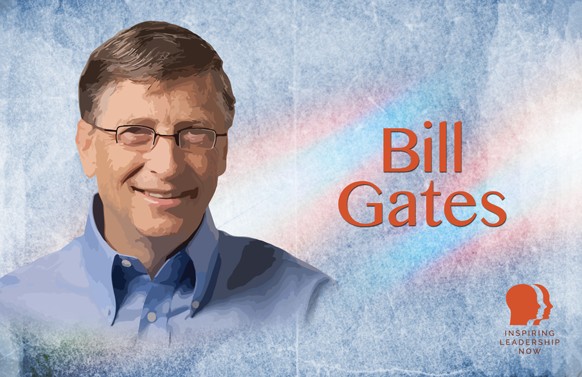
Very few people are as synonymous with their industry as what Bill Gates is with information technology (IT).
It wasn’t until the age of 13 that Bill saw his first computer at school. He actually paid to use it, and when his money ran out, he hacked into the computer to use it for free. At this point you could say young Bill was destined for an innovative career in IT.
Bill Gates grew up in an upper middle class family in Seattle, Washington and had a very close relationship with his mother. From an early age he showed flashes of brilliance, including a knack for business and entrepreneurship.
By the age of 15, he had already started a business with his friend Paul Allen. Little did they know that just 5 years later they would be on the path to changing the way the world does business and even communicates.
In 1975, Gates and Allen co-founded Microsoft. And the two poured everything they had into it. Gates’ incredible vision, aggressive business strategy and unrivaled work ethic made Microsoft the world’s biggest technology company. In the process, he became incredibly wealthy.
By the time Gates and Allen decided to incorporate Microsoft in 1981, the company already had 128 employees and generated $16 million in revenue. Just two years later, the company went global.
However, it wasn’t until 1985 that Gates would truly leave his mark on the world. That was the year Microsoft launched Windows, its flagship software.
For more than two decades, Gates has routinely ranked among the richest people in the world, and in 2016, Forbes trumped this by ranking him as the richest man in the world. But those riches didn’t come without sacrifice.
Gates worked tirelessly to build Microsoft and ensure its leadership pace in an increasingly competitive market. It wasn’t until 2014 that Gates stepped down as Chairman only to remain active as a technology advisor.
Today, Microsoft generates nearly $100 billion annually in revenue and employs 120,000 people worldwide.
Incredibly, the founding of Microsoft isn’t Gates’ only legacy. As a committed philanthropist, Bill and his wife Melinda Gates have established a $44 billion endowment designed to improve healthcare and reduce extreme poverty around the world.
It is by far the largest private foundation of its kind in the world. By 2013, Bill Gates had personally donated $28 billion to the foundation, a testament to his generosity and moral character.
10. Oprah Winfrey – Overcoming The Odds To Empower An Entire Generation Of Women To Succeed
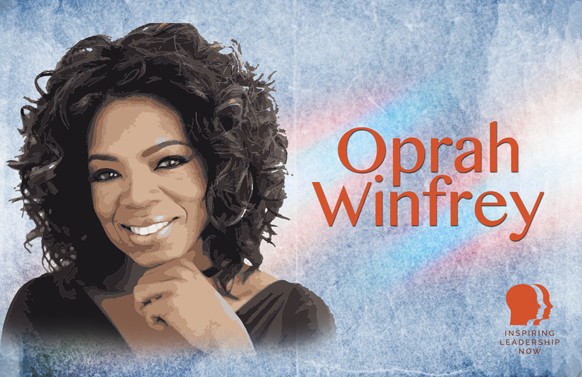
Oprah Winfrey is much more than a television talk show host. She is one of the world’s most powerful business leaders who exerts a great deal of influence on popular culture and mainstream society.
Valued at over $3 billion, Oprah has come a long way from the rural in Mississippi, where she was born. To say that Oprah, a black woman from the south, overcame the odds would be a huge understatement.
Very few people with her background and double-minority status would ever dream of making it in show business during the 1970s and 1980s.
Oprah’s battles didn’t begin with her race or gender. Her youth was filled with horrible sexual abuse at the hands of relatives and family friends.
After a turbulent adolescence in the small farming community of Kosciusko, she moved to Nashville to live with her father. She would eventually enter Tennessee State University in 1971 before moving to Baltimore, Maryland 5 years later to begin her career in television.
By 1986, Oprah had her own nationally syndicated television program, Oprah Winfrey Show. This was the platform that catapulted her to critical acclaim and global recognition.
During the 1990s, when talk shows like Jerry Springer were dominating the ratings with trashy topics, Oprah promised to keep her show respectful and free of exploitive topics.
Although ratings fell initially, Oprah stuck to her guns. Oprah’s integrity would lead her to more fame and prosperity over the years, as she became a mainstay in an industry filled with cheap tricks.
In addition to her television show and media celebrity, Oprah has made incredible contributions to the publishing world through Oprah’s Book Club. This segment of her show not only promoted literacy, it helped unknown authors become recognized for their work.
Her generosity didn’t stop there. Through various charities, she has raised hundreds of millions of dollars to help children and underprivileged youth all over the world.
According to Forbes, Oprah was the richest African American of the 20th century. Life Magazine also recognized her as the most influential woman of her generation, a testament to this media icon who has not only done it all, but inspired an entire generation of young women to pursue their dreams – regardless of their race or ethnicity.
So there you have it.
Ten inspiring leaders whose vision, perseverance and commitment to their values helped them rise up in the face of adversity and achieve almost impossible triumphs.
Learning more about their incredible stories and how they have redefined leadership has given us more of an insight into what it takes to become an inspiring leader, how about you?
If you’re interested in honing your leadership skills so you too can become a respected and more influential leader – we have a special treat for you:
… Our 14-Day FREE trial of The Leader’s Edge Membership.
As soon as you activate your FREE TRIAL membership you’ll get instant access to practical training based on the latest trends and research so you can quickly upgrade your leadership skills and break free from any bad habits or beliefs that are currently keeping you “stuck.”



